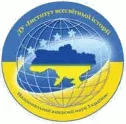Інтеграційні процеси в державах Південного Кавказу і вплив воєнних конфліктів на їх перебіг у пострадянський період
##plugins.themes.bootstrap3.article.main##
Анотація
Дослідження стосується розгляду ключових аспектів інтеграційних процесів, що відбуваються у державах Південного Кавказу після розпаду СРСР, насамперед воєнних конфліктів, які стали наслідком незбалансованої етнічної політики колишньої метрополії. І власне вони значною мірою обумовлюють перебіг і напрями інтеграції Азербайджану, Вірменії та Грузії. Методологія роботи полягає у застосуванні порівняльно-історичного та проблемно-пошукового методу дослідження у поєднанні з критичним аналізом досліджень, які стосуються перебігу пострадянської трансформації Південного Кавказу. Наукова новизна дослідження полягає у розширенні наукового розуміння особливостей існування нових незалежних держав Південного Кавказу, визначення міри впливу воєнних конфліктів на інтеграційні перспективи країн регіону. Аналіз досліджень, публікацій у ЗМІ, виступів та заяв лідерів держав дозволяє визначити, яким чином конфлікт за Нагірний Карабах, російсько-грузинські протистояння в Абхазії та Південній Осетії позначаються на зовнішньополітичному курсі та пошуку союзників для їх вирішення.
Встановлено, що перебіг інтеграційних процесів на Південному Кавказі й досі перебуває під впливом і серйозним тиском з боку Російської Федерації, яка активно перешкоджає інтеграційним намірам країн регіону. Пошук власного місця у нових реаліях доби незалежності став причиною такого явища, як багатовекторність зовнішньої політики. Разом з тим очевидно, що внаслідок воєнних конфліктів вектор інтеграції Грузії направлений на вступ держави до НАТО як гаранта безпеки від неоімперської агресії Росії. Вірменія як агресор в карабаському конфлікті обрала проросійський вектор інтеграції, а Азербайджан зосередився на альянсі з Туреччиною.
Завантаження
##plugins.themes.bootstrap3.article.details##
Посилання
Bohaturov, A. Hlobalniye aspekty vliyaniya SShA v XXI v. [Global aspects of US influence in XXI ct.]. [Online]. Available from: http://www.obraforum.ru/pdf/bogaturov-US-civ-Nov2007.pdf [In Russian].
Hvozdkov, S. (2015). Postradianski derzhavy v zovnishnii politytsi SShA za chasiv prezydentstva Dzh. W. Busha [Post-Soviet states in foreign policy of USA during the presidency of J.W. Bush]. Etnichna istoriia narodiv Yevropy [Ethnic history of the peoples of Europe], 47, pp. 112-116. [In Ukrainian].
Honchar, Yu.B. (1997). Evoliutsiia polityky SShA shchodo intehratsiinykh protsesiv u Zakhidnii Yevropi (kinets 80-kh – 90-ti roky) [The evolution of US policy on integration processes in Western Europe (late 80’s – 90’s)]: abstr. dis. cand. of hist. sciences: 07.00.02. Kyiv. [In Ukrainian].
Bzheziynskyi, Z. (1998). Velikaya shakhmatnaya doska: hospodstvo Ameriki i yeho heostratehicheskiye imperativy [The Grand Chessboard: American Dominance and Its Geostrategic Imperatives]. Moskva: International relations. [In Russian].
Dudko, I. (2003). Natsionalni interesy SShA u postbipoliarnomu sviti [US national interests in the post-bipolar world]. Kyiv: KNEU. [In Ukrainian].
Demurin, M.V. (2007). Rossiya i strany SNG. Tsivilizatsionnyi vyzov. Chto delat Rossii s oskolkami byvsheho SSSR [Russia and the CIS countries. Civilization challenge. What has to do Russia with the fragments of the former USSR]. Politicheskii klass [Political class], 12, pp. 16-27. [In Russian].
Zhuravliov, V. (2004). Hlobalyzatsia: vyzovy istorii i otvety teorii [Globalization: Challenges to history and answers to theory]. Hlobalizatsia i humanitarnoye znaniye [Globalization and humanitarian knowledge], 1, pp. 43-46. [In Russian].
Zatulin, K. Vybor Armenii v polzu assotsiatsii s ES oznachayet opredelennyi tsivilizatsionnyi vybor [Armenia’s choice in favor of association with the EU means a certain civilizational choice]. [Online]. Available from: https://www.tert.am/ru/news/2013/07/14/zatulin/1486226 [In Russian].
Lapin, N. Fundamentalniye tsennosti tsivilizatsionnoho vybora v XXI stoletii [Fundamental values of civilization choice in the 21st century]. [Online]. Available from: http://vphil.ru/index.php?option=com_content&task=view&id=1137 [In Russian].
Romaniuk, O. (2006). Modeli postkomunistychnykh transformatsii [Models of post-communist transformations]. Politychnyi menedzhment [Political management], 3, pp. 35-50. [In Ukrainian].
Mekhtiiev, R. (2012). Horis – 2010: Sezon teatru absurdu [Horis-2010: Season of absurd theatre]. Kyiv: Dmitry Burago publishing house. [In Ukrainian].
Iskakov, I. (2014). Politicheskaia konkurentsiia i konsolidatsia v protsesse evraziiskoi intehratsii [Political competition and consolidation in the process of Eurasian integration]. Vestnik Baltiiskoho federalnoho universiteta im. E. Kanta [Bulletin of the I. Kant Baltic Federal University], 12, pp. 164-171. [In Russian].
Statut Orhanizatsii Obiednanykh Natsii i Statut Mizhnarodnoho Sudu [Charter of the United Nations and Statute of the International Court of Justice]. [Online]. Available from: https://zakon.rada.gov.ua/laws/show/995_010#Text [In Ukrainian].
Pryntsyp neporushnosti derzhavnykh kordoniv [The principle of inviolability of state borders]. [Online]. Available from: https://pidru4niki.com/1377030149456/pravo/printsip_neporushnosti_ derzhavnih_kordoniv [In Ukrainian].
Heopolitychnyi vuzol Pivdennoho Kavkazu (2020). [Geopolitical node of the South Caucasus]. Yevropeiska ta yevraziiska paradyhmy intehratsii yak faktor transformatsii postradianskoho prostoru: monohrafiia [European and Eurasian paradigms of integration as a factor in the transformation of the post-Soviet space: a monograph]. Kyiv: DU “Instytut vsesvitnoi istorii NAN Ukrainy”, pp. 180-196. [In Ukrainian].
V Gruzii ratifitsirovali sohlashenie o svobodnoi torhovle s Kitaem [Georgia ratified free trade agreement with China]. [Online]. Available from: https://www.nesgrorgia.ge/v-gruzii-ratifitsirovali-soglashenie-o-svobodnoj-torgovle-s-kitaem/ [In Russian].
Virmeniia pidpysala uhodu pro partnerstvo z YeS [Armenia has signed a partnership agreement with the EU]. [Online]. Available from: https://www.radiosvoboda.org/a/news/28875370.html [In Ukrainian].

